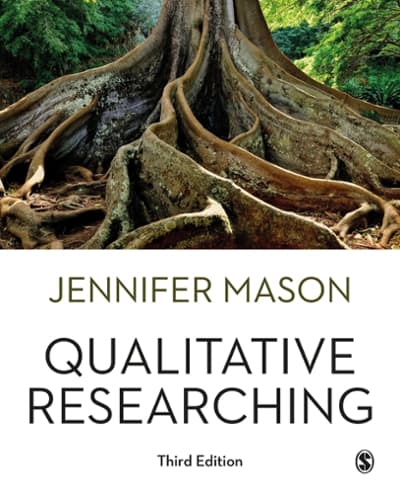Question
Give literature support to given examples by using Uwe Harvard reference Behavioural theory Learning involves acquiring new knowledge, ideas, behaviours, and attitudes. Learning can be
Give literature support to given examples by using Uwe Harvard reference
- Behavioural theory
Learning involves acquiring new knowledge, ideas, behaviours, and attitudes. Learning can be achieved consciously or unconsciously (Rehmanet al., 2020).A famous work on classical conditioning is that by Russian physiologist Ivan Pavlov, born in 1849. His influence on the study of classical conditioning has been tremendous.
On the hand the application of reinforcement or punishment to improve or reduce a behaviour is the subject of operant conditioning (or instrumental conditioning). This process results in the formation of a connection between the conduct and the consequences of that activity (Cherry, 2023).
Example 1: Some children have a fear of having their vital signs checked; they think it might cause them pain. Therefore, nurses explain the procedure beforehand, demonstrating how the instruments, such as a thermometer, work without causing harm.
Example 2: The nursing in-charge instructed that the standard operating procedure be completed by a specified due date. Staff members who successfully completed the task were granted annual leave, while those who failed to complete it had their leave withheld until the task was finished.
- Cognitive theory
Cognitive Behavioural Theory investigates how our beliefs impact our actions and emotions. Bruner in learning theory through refers to a cognitive system named representation system with the concept of knowledge and experience and organizes them. This system has three modes of practical, visual and abstract. He believes that: Training should be designed and implemented to be compatible with learners' thinking and has forced them to think (Jarre, 2021).
Example: Instead of directly instructing students on caring for a patient with diabetes, the approach could involve presenting the disruptions in the body's physiology caused by the disease. Nurses may then be asked to analyse potential issues the patient could face. By connecting these factors to physiology and considering previous patient care experiences, suitable nursing interventions can be identified.
Example 2: Consider a scenario where a student initially acquires the practical skills of wound dressing without understanding its significance; this represents the inactive stage. Subsequently, the student progresses to conceptualizing wound care by envisioning the wound healing process, understanding the role of different dressings, and recognizing the impact on patient recovery. This advancement signifies the transition to the iconic stage. As the student further evolves, they enter the symbolic stage, wherein they can articulate the principles of wound healing, elucidate the importance of infection control, and assess the overall patient well-being in the context of wound care.
- Humanistic theory
Humanistic psychology emphasizes the value of development and self-actualization while concentrating on the potential of each individual. Humanistic psychology's central tenet is that individuals are inherently decent and that social and mental health issues arise from these aberrations (Cherry, 2022).
Example 1: Providing patient-centred care, for example, involves encouraging close family members to participate when giving a bed bath to the patient.
Example 2: Rather than simply administering prescribed medications to a patient in the end stages of cancer, a humanistic approach by the nurse could involve addressing the individual's unique needs and desires. For instance, the nurse may assist the patient in fulfilling their final wishes, recognizing and honoring their personal preferences and goals.
Step by Step Solution
There are 3 Steps involved in it
Step: 1

Get Instant Access to Expert-Tailored Solutions
See step-by-step solutions with expert insights and AI powered tools for academic success
Step: 2

Step: 3

Ace Your Homework with AI
Get the answers you need in no time with our AI-driven, step-by-step assistance
Get Started


